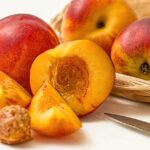Chives, an edible herb available at most grocery stores, offer a mild onion taste and are frequently incorporated as a final touch in our culinary creations.
Chives are a popular addition to Mexican cuisine, salads, sauces, soups, potato dishes, and fish, thanks to their delicious savory taste. They are widely regarded as a staple herb in every kitchen by culinary media. Moreover, this plant with lavender-colored flowers possesses diverse medicinal properties.
Superfoods are in high demand as they are known for their exceptional nutritional benefits without excess calories. Chives stand out as an excellent source of beneficial nutrients, yet they contain fewer calories. Additionally, the abundance of antioxidants and bioactive nutrients in chives could make them a potential superfood.
Chives are readily accessible because they are one of the simplest perennial herbs to cultivate. They can be grown in numerous locations such as along walkways, in herb gardens, or even in container gardens. All that is required is an area abundant in sunlight. Moreover, due to their antimicrobial properties, chives have been highly favored in traditional Chinese medicine.
Chives
The allium plant family includes chives, or Allium schoenoprasum, which is a fragrant herb related to garlic, leeks, onions, and spring onions. Chives are typically consumed raw and are a prevalent ingredient in Mediterranean cuisine. Although it is commonly grown in North America, Asia, and Europe, chives are extensively cultivated.
For at least 5,000 years, this herb has possessed a strong taste and people have grown it since the Middle Ages. The term “chives” originated from the Latin “cepa,” which translates to onion.
With long, slim leaves and purple blooms similar to onions, they form vast groupings resembling long grass, but they differ from other onion species as they lack the subterranean bulb.
Remember that there are various other plants that may appear alike but are actually a distinct plant species and have subtle variations in flavor and health advantages. Chinese chives, also known as “garlic chives,” have a distinctive garlic flavor and distinct features such as fragrant white flowers and flat leaves. Furthermore, they are frequently mistaken for scallions or green onions.
Although chives are similar to onions, they are distinct from green onions in terms of appearance. They possess a comparable subtle onion flavor, yet their long, supple stems are solidly green in color.
On the other hand, green onions have a thicker, firm stem which is white at the base and gradually becomes green. Furthermore, the white part of green onions contributes a stronger onion taste compared to chives. Additionally, unlike green onions, chives cannot be stored for a prolonged period in the refrigerator.
Nutrition Facts
Fresh chives may be consumed in small quantities, yet they possess significant nutritional value. Combining them with various other wholesome foods can enhance vitamin K, vitamin C, and vitamin A consumption, even with just one tablespoon, allowing you to fulfill your daily nutrient requirements.
Approximately, three grams or one tablespoonful of raw chives offers:
- 1 calorie
- 0.1 grams carbohydrates
- 0.1 grams protein
- 0.1 grams fiber
- 6.4 micrograms vitamin K (8 percent DV)
- 1.7 milligrams vitamin C (3 percent DV)
- 131 international units vitamin A (3 percent DV)
- 3.2 micrograms folate (1 percent DV)
- 0.1 milligrams manganese (1 percent DV)
Health Benefits of Chives
When used in recommended quantities, chives show multiple health benefits.
1. Antimicrobial Properties
The antimicrobial qualities of chives are outstanding as they display antiviral, antibacterial, and antifungal characteristics, which enable them to guard us from seasonal viral infections and detrimental microorganisms. Chives’ antiviral properties hinder viral growth, combat intrusive pathogens, and enhance immunity.
Of utmost significance is the finding from a study that reveals chives possess the strongest antibacterial properties when it comes to addressing food-borne pathogens. Additionally, chives utilized in herbal infusions serve as a potent treatment for yeast and viral infections.
2. Anticancer Potential
Lutein and zeaxanthin, which are present in chives, are potent types of flavonoid antioxidants that effectively combat mouth and lung cancers. Chives are also abundant in allicin, a significant antioxidant that has been shown by scientific research to decrease the likelihood of breast cancer. Additionally, chives’ high fiber concentration aids in the fight against colon cancer.
Several other studies confirm that chives have the ability to hinder the development of prostate cancer due to their ability to trigger the synthesis of glutathione within the body. Glutathione, which is a soluble antioxidant, operates as a cancer-detecting agent by identifying cancer-causing elements and aiding in their removal. For this reason, chives are a highly advantageous means of preventing cancer.
3. Promotes Hair Growth
The extract of chives works as a natural remedy to enhance hair growth. The ability of chives to combat scalp infections due to its antimicrobial properties can aid in the formation of new hair follicles. Chives also promote increased blood flow to the scalp, which ultimately facilitates hair growth. Employing chive extract as a hair pack has the potential to provide the scalp with nourishment and enhance hair follicle strength.
4. Diabetic Friendly
Chives contain flavonoids that combat the adverse effects linked to elevated blood sugar levels. These flavonoids exhibit anti-diabetic characteristics and address type 2 diabetes. Chives possess a low glycemic index rating of 15, which promotes stable blood sugar levels. Additionally, a 5g serving of this herb contains only 0.1g of carbohydrates, indicating potential value for individuals with diabetes. Consequently, chives do not trigger a sudden spike in blood sugar levels.
5. Beneficial During Pregnancy
Consuming chives during pregnancy has potential benefits for moms-to-be. It is safe to eat and contains the goodness of folate. Doctors always stress the impression of folate during pregnancy. It is a vital B vitamin that prevents congenital disabilities of the brain and spinal cord. Folate also aids in DNA synthesis and cell division.
It’s important to properly clean and wash chives before eating, as they are a good source of vitamin C which is important for boosting immunity during pregnancy.
6. Improve Sleep Quality and Mood
The consumption of chives can lead to an improvement in the quality of sleep due to their high choline content, an active ingredient that promotes better sleep. Chives are recommended for treating insomnia. Additionally, chives are rich in folic acid which can trigger the production of serotonin and dopamine, hormones that contribute to a person’s positive mood.
7. Treatment for Kidney Stones
According to a recent study, fresh and dried leaves of chives have the ability to dissolve calcium oxalate crystals, which are commonly known as kidney stones. Moreover, chives consist of an organic compound known as ethyl acetate, which possesses anti-inflammatory properties and is effective in treating calcium kidney stones. Therefore, chives can be considered a viable herbal remedy for the treatment of kidney stones.
8. Improves Heart Health
The primary component found in chives is Allicin, which is effective in lowering levels of bad cholesterol and blood pressure. Allicin operates by promoting the release of nitric oxide in the bloodstream, which brings about a decrease in blood pressure by reducing the stiffness of blood vessels.
In addition, quercetin, an organic compound present in chives, plays a crucial role in preventing arterial plaque formation and reducing the risk of stroke.
9. Boost Bone Strength
Chives are enriched with vitamin K, which is responsible for various health benefits. Apart from its function in blood clotting, vitamin K is significant in maintaining robust and healthy bones. As it participates in bone metabolism, certain research has demonstrated that vitamin K supplements might enhance bone mineral density and minimize the possibility of bone fractures.
In order to obtain optimal outcomes, it is recommended to combine chives with additional foods that contain vitamin K. Vegetables such as leafy greens, scallions, Brussels sprouts, cabbage, broccoli and cucumbers are all exceptional options for enhancing bone health with their vitamin K content.
10. Contain Cancer-Fighting Compounds
Chives, like other vegetables from the same family, are thought to have strong anti-cancer qualities. Consuming allium vegetables regularly has been linked to a decreased likelihood of developing certain types of cancer. A Chinese study found that increasing the intake of allium vegetables was connected with a decreased risk of stomach cancer.
Chive seeds are believed to have cancer-fighting properties due to the existence of organosulfur compounds. According to a review released in Environmental Health Perspectives, these compounds can modify the actions of particular enzymes responsible for detoxification, thereby restricting the proliferation and metastasis of cancer cells.
11. Reduce Inflammation
While acute inflammation is a natural aspect of the immune system’s reaction, persistent high levels of inflammation can be detrimental to one’s health. Studies propose that inflammation could be the underlying cause of ailments such as autoimmune disease, neurodegenerative disorders, and cancer.
Chives are known for being a rich source of antioxidants that can fight inflammation. Additionally, they contain other compounds that aid in reducing inflammation. A research conducted in Romania found that chive leaves can decrease oxidative stress and possess strong anti-inflammatory properties. This makes chives a food that is both anti-inflammatory and antioxidant.
12. Aid in Disease Prevention
Encouraging research indicates that chives may assist in preventing long-term diseases, including cancer, diabetes, and heart disease.
A study published in Evidence-Based Complementary and Alternative Medicine states that Allium plants contain various beneficial substances such as organosulfur compounds, quercetin, flavonoids, saponins, and more. These substances offer numerous health benefits including anti-cancer properties, cardiovascular disease prevention, anti-inflammation, anti-obesity, anti-diabetes, antioxidant and antimicrobial effects, as well as neuroprotective and immunological benefits.
A good portion of vitamin C is also found in them, which is a crucial water-soluble vitamin with potent antioxidant properties. Research reveals that vitamin C safeguards the immunity of the body, assists in battling infections, and has therapeutic benefits against numerous illnesses and conditions.
Although chives alone may not meet your daily need for vitamin C, you can increase your intake of this crucial micronutrient by incorporating them with different fruits and vegetables.
13. Good Source of Choline
The nutrient choline, which is essential but often lacking in our diets, can be obtained from chives. Choline contributes to neurotransmitter synthesis, metabolism, cell structure, and other vital functions. It is also believed to directly impact fetal development, liver health, and brain function. Thus, it is crucial to consume sufficient amounts of choline daily.
Eggs, wild-caught salmon, quinoa, chicken, cauliflower, and wheat germ are also excellent sources of choline.
Risks and Side Effects
To ensure the freshness of chives, it is crucial to adhere to food safety protocols when handling them. It’s important to choose chives with consistent coloring.
Ways to Use Chives
Hair Rinse Solution
After boiling chives in water for ten minutes and straining it, let it cool down. Add a single squeeze of fresh lime juice, mix it up and use it to rinse your hair.
Facial Mask
For those with dry skin, chives can function as a mask for the face. Begin by cleaning the chives and creating a puree. After that, apply the puree as a mask and let it sit on the skin for 25 to 30 minutes. Finally, wash it off with water and use moisturizer.
Remedy for Sore Throat
Adding chives to daily meals is a way to combat the flu. Chives also have anti-inflammatory qualities, which can help reduce inflammation in the throat and alleviate soreness. To make a sore throat cure, steep chopped chives in boiling water and drain once cooled. Drink the lukewarm liquid.
Insect Repellent
Chives can serve as an insect deterrent by obtaining chive juice and applying it onto leaves. Another way is to boil water and chives together to create a solution, which can be subsequently used to water vegetable plants to prevent mildew.
Side notes
- What is a chive? It is a type of edible plant that is closely related to other species like garlic and onions.
- Are chives and green onions the same? Although the two are often used interchangeably, there are several differences between chives vs. green onions. The main distinction between green onion vs. chives is the flavor. The chive is more mild while green onion has a strong, peppery taste.
- Are chives good for you? In addition to packing in plenty of vitamin K, vitamin C and vitamin A, they are also rich in antioxidants and may help reduce inflammation, boost bone strength, fight cancer cells and protect against chronic disease.
- You can find them at most supermarkets in dried or fresh form, usually in the produce section or alongside other herbs and spices.
- Alternatively, you can also try growing your own at home and adding them to your favorite dishes to enjoy the health benefits that this incredible ingredient has to offer.



